8-12-20
Open Door: An Ode to Motherhood by Florenc Papas
By Diane Sippl
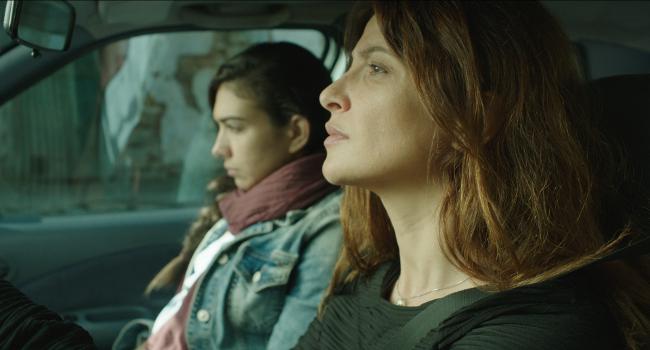
Elma: Do you think Mom ever loved Dad?
Rudina: I don’t know.
Elma: I don’t think she ever did.
Rudina: I don’t think she had time to ask herself if she did.
Elma: I never understood why she always obeyed him.
Rudina: You think she had a choice?
Open Door
Nonfiction reveals the lies, but only metaphor can reveal the truth.
Nadine Gordimer
But there is something about stripping away the myths that veil the lies that is vitally satisfying.
Aminatta Forna
Novelist and essayist Aminatta Forna tells us that literary fiction—and not genre fiction like romances or thrillers—“prompts the reader to imagine the characters’ introspective dialogues,” characters who share our own conflicts and flaws but who take us beyond our preconceived notions. Traveling across distance, space, and time through books breeds empathy; this use of the imagination improves our capacity to understand what others are feeling and thinking. It’s often said that the arts don’t give answers—they raise questions. Forna traces the difference between writing fiction and nonfiction by noting their separate questions: creative nonfiction asks “what is?” and fiction asks “what if?”.
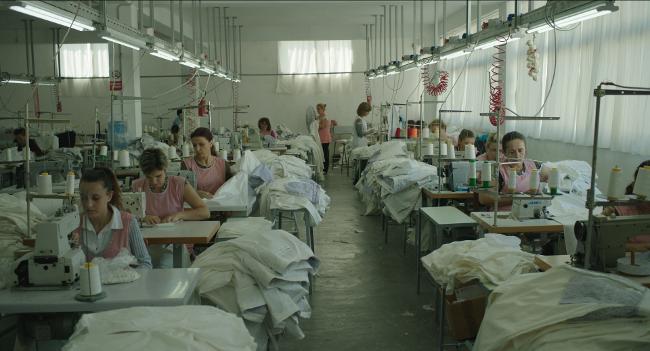
A road movie might seem miles away from both of these verbal genres. Words are abstract; images are tangible. Literature is an imaginary art; cinema is a plastic art. There are road films by cineastes such as Ceylan (Once Upon a Time in Anatolia) and Panahi (Three Faces) that work a bit like mysteries or at least social puzzles—including those by Angelopoulos (Ulysses) or Oliveira (Talking Pictures) that are really “boat films” tracking history and cinema. They feel more like poetry than the “popcorn movies” with action, fast editing, non-stop music and pat endings. But the road movie is often part of the latter—a popular genre filled with adventure, suspense, surprise vistas around every corner, and a clear sense of having “arrived,” one way or another.
Yet what if such a film in this less esoteric and more “user-friendly” mode followed the path of the road movie as art, maybe more in the vein of the Italian neo-realists traversing the grounds on foot, by necessity, such as in Rossellini’s Open City or De Sica’s Bicycle Thieves, taking us past the everyday sites of people both familiar and strange, through the detritus of war or the destitution of families, into the fears of adults and children who follow their tracks, into the fragmentation of a shifting society beneath their feet and into the hearts of the protagonists on new ground? Yes—what if a filmmaker took up a seemingly simple idea, the destabilizing anxiety of a pregnant woman facing her father when she has no husband and no way to live? Could a popular road movie quietly flip the all-encompassing gaze of the Albanian countryside as seen through the eyes of the men who make the decisions and the women who do their duty? Could a little old Ford on the road transgress the boundaries of patriarchy and plant a new future for a small-boy passenger and a baby-girl-on-the-way? Can a road movie work as a storyteller with bi-focal lenses, documenting a culture’s habits all the while it aesthetically critiques the ways and means of upholding them? In Open Door, Florenc Papas softly but brazenly takes on this challenge. He is as seductive as he is subversive, winning our empathy for his characters crossing the bridge from an ancien régime to a new one.
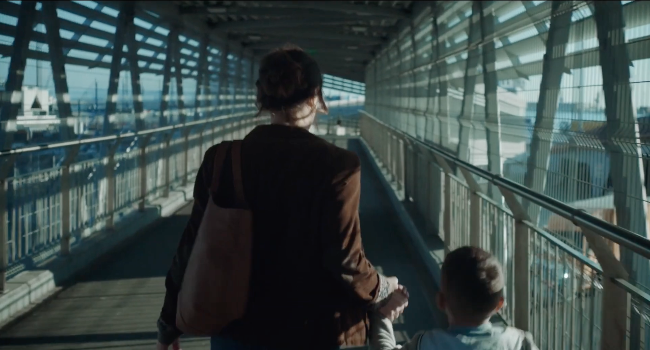
We meet Rudina (Luli Bitri) on a day-in-the-life routine for her as she helps her mother-in-law from the toilet, parcels out pills for her father-in-law, finishes sewing her quota at the garment factory, one of the most traditional and exploitive workplace occupations for women. She rushes from there to pick up her small son, Orion (Maxwell Guzja), and they jump into the car for a trip to her father’s house, but first to the port to pick up Elma (Jonida Vokshi), Rudina’s younger sister, who arrives from Bari with an annoying surprise: she’s pregnant. This should be happy news, but as is the case for both women, the men who have “fathered” their children (exclusively in terms of procreation, it seems) live and work abroad in Greece and Italy, a common scenario in the region today. The truth emerges that Elma will not be marrying, not that marriage ever did Rudina much good.
Rudina is down-to-business, in a sober mood, and either tacitly withdrawn or belligerent; Elma is naïve, fool-hardy, timid, afraid, and dependent—but also cagey. She cooks up a scheme that Rudina finds childish and irresponsible. To see the interplay between these two fine actresses of opposite sensibilities is a marvel: Vokshi’s native joie-de-vivre gets literally “smoked out” by Bitri’s sophisticated super-ego airs as the trip and the revelations move on. Vokshi’s expression is visceral and physical, from her baby pains to her threat to jump out of the car to her bouncing up and down in a car-seat dance at the right moment. Bitri’s “cool” is devastating, but even she can break down. As for Orion, he’s the face of sensitivity, innocently processing everything he sees and hears from moment to moment, absorbing and not emoting, until he’s quietly had enough.
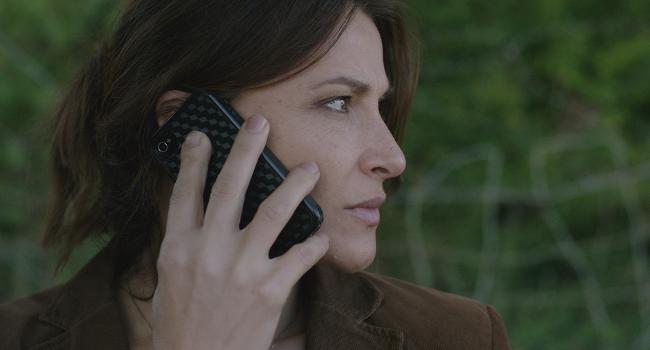
The mobile phone is ubiquitous in the film, with all its inherent flexibility on a road trip and its options for white lies, children’s entertainment, and so-called mechanical “failures.” It moves the story along for this dynamic trio even when Rudina reports to her father they’re not yet en route and Orion reports to his father he’s been left “all alone” (which might be emotionally true, but not physically). In an Ozu-like way, the electronic device expands the frame to include the conflicts beyond it. Rudina’s husband and her lover can remain unseen—and never quite heard—but these men are ever present in the tension she’d rather not acknowledge. Their cryptic voices open the timeframe as well, to past choices and actions that cannot be deleted.
When the sisters’ arguments heat up and get loud, Elma gestures for tact in front of the child, and Rudina retorts that Orion doesn’t understand, but as in the early days of the Zavattini/DeSica neorealist partnership, “the children are watching us.” Rudina’s little son adds a quiet but potent and poignant edge to the film because we’re always waiting for him to blow their cover—the ruse Rudina reluctantly shares with Elma. And he does “act out”—disappearing from them at night after an inventively illuminated moment. Ironically, the boy appears to sleep through the only boisterously happy scene in the film, when Elma turns up the radio on a song from their past by Irma and Eranda Libohova and they can’t help but sing along in a moment of nostalgia. A big hit song in the winter of 1987 and thereafter, sung by two real-life sisters, the song signals a turning point in bonding the two sisters in front of us once again, but it also speaks for the country and the popular, collective history of the land over which they travel.
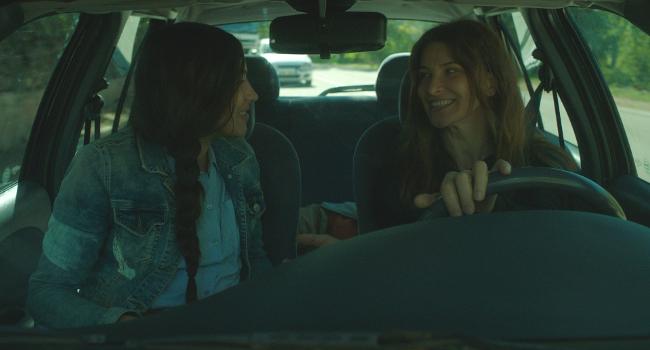
The trip takes us past hills and mountains, rocky cliffs and forests, main-street farmers’ markets, and village street bazaars with goats and cows meandering down the roads—all leading us to an old stone house beside a placid lake—locations that are at once scenes from life and metaphors of history. The car’s route is from the port of Durres, a bustling here-and-now city, to a remote outpost of the past, an isolated hamlet in the southeast of the country called Lin, beside Ohrid Lake. The journey is retrogressive, it would seem, and once there, even regressive: women should marry “out” of the family, take care of their husband’s elders, and give birth to sons. Yet none of that is going to happen.
It might end up looking more like the picture the motel manager along the way reports to Rudina. He has five daughters, all married: two live in Italy, one in Greece, one nearby, and one with him, with her young son as well, the age of Orion. That daughter’s husband was a drinker and a gambler, so her father “ended it” and said, “Come live with me. My door is always open.” Likewise, the road is always open—to new experiences, detours, the unexpected, and the not-yet-imagined. Rudina may not know it, but her “glass of talk” with the old man when she buys a bottle of wine at the front desk on that sleepless night does her a lot of good. Maybe it reinforces her courage to be the only one to “lift a glass” to her deceased mother at her father's family dinner the next day, the anniversary of her mother’s death having been the raison d’être for the whole trip.
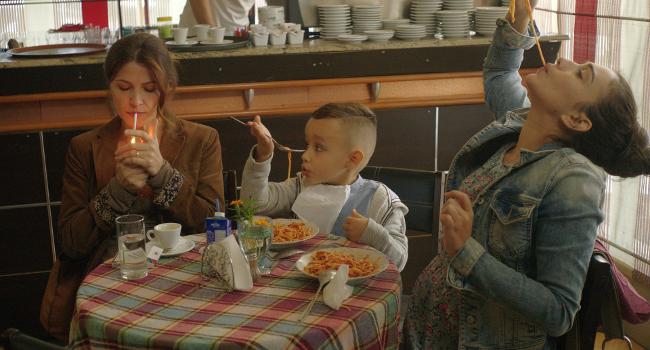
Even though they sit side-by-side in the same car for their journey, Rudina’s and Elma’s “routes” actually cross each other’s. The trajectories for each sister’s well-being move in opposite directions, as they need to, for these women to grow. Not only are the two of them beautiful foils for each other—Rudina the “driver” who needs to take charge when no one else will but who is at a loss to control her husband’s negligence and exploitation of her, and Elma the “passenger” who needs to be chauffeured through life but who finds it difficult to go along for the ride when the fun turns into the burden of responsibility for herself and her baby. Rudina plays the Rock of Gibraltar for her son and in-laws and now, her sister; Elma plays the Little Miss Muffet, alone and afraid.
But on the fertile ground of the road trip, their deeper emotions come to the fore: Elma calls Rudina a “maid” for her husband’s family after she gave up the love of her life to please her father, and Rudina takes the taunt to heart and stands up to her husband; Rudina gives up playing tough to her sister and goes along with Elma’s childish scheme of a marriage pretense, only for Elma to pull herself together and stand up to her father. These women have reservoirs of power unbeknownst to themselves and each other. The mystery in discovering these is the journey we take with them.
Papas’ assured sensitivity to the characters leads us to trust that he feels them “in his bones” and understands them better than they know themselves, so furthermore, he sees what has to happen. Thus the minimal dialogue is entrancing. We need no more than a few off-screen words from one man in an earlier scene, for example, to intuit who it is who is sitting beside Rudina in the last shot of the film, on the trip “home” for her, far from her father’s house where she grew up.
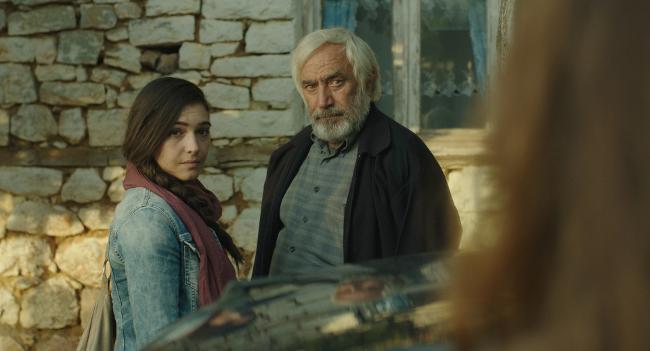
What makes a film authentic? To present the inner truth of a character, does its writer or director need to have walked in such a person’s shoes? Consider The Hired Man, a recent novel by Aminatta Forna, a woman born and raised in Sierra Leone and then the UK who now lives in London and writes an entire novel set in Croatia in the voice of a man who never leaves his homeland, nor does her story. From the “inside,” it’s very much about men—their traditions in the region, their power, their sense of entitlement, and what it does to the others in their world. In the end, we understand what can bring on a war, but we get it from within, where the damage lies dormant, until one day it’s released. The point is that the author finds the seed and painstakingly presents the human garden that supports and nourishes it. The Hired Man is a love story.
And so is Open Door—several, in fact. We observe Rudina’s love for her mother, Elma’s love for her father, the sisters’ love for each other, Orion’s love for them all, and finally the love between two lovers, and none of these is portrayed in the usual way, which is what makes the film so lyrical. There is a frustrated longing among all of them, and while nothing much happens on this anxious trip “home,” everything matters, because all of it amounts to their genuine feelings. What a way to learn about a country—one that deserves its own love, too, and we feel it, from the inside. This—the enigmas, the ellipses, the unsaid—is a way to know real people. The film begins and ends in silence, opening with Rudina’s hands pressed against her face in angst with all that falls upon her that day, and closing with Orion’s gaze out the car’s rear window, at all they’ve left behind. He turns and asks his usual question, “Where are we going?” No one answers. His mom, eyes on the road, reaches back for his hand and kisses it. Rudina and the man beside her stare straight ahead, right at us, in an extended take as the car drives forward until a long shot picks it up off in the hills. These silences, given all that’s hanging in the air, are as pregnant as Elma’s belly, inviting our willing suspension of disbelief, encouraging us to drop our preconceived notions of a society stuck in the ruts of the past and to imagine a kinder, more open world—an “open door.”
Open Door
Director: Florenc Papas; Producer: Eno Milkani; Screenplay: Florenc Papas, Ajola Daja; Cinematographer: Sevdije Kastrati; Editor: Stefan Stabenow; Sound: Igor Popovski; Music: Aleksandar Pejovski; Production Design: Erjona Daka; Costumes: Borana Gjyzeli
Cast: Luli Bitri, Jonida Vokshi, Maxwell Guzja, Sotiraq Bratko, Guljelm Radoja, Elidon Aliko, Visar Vishka, Jorgaq Tushe, Andi Begolli
Color, 78 min. In Albanian with English subtitles.